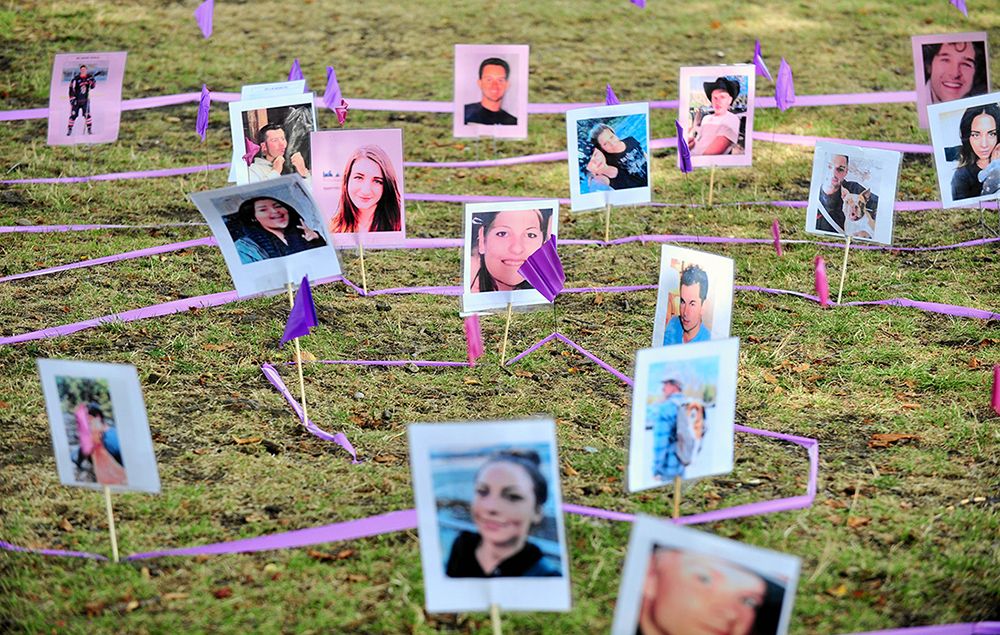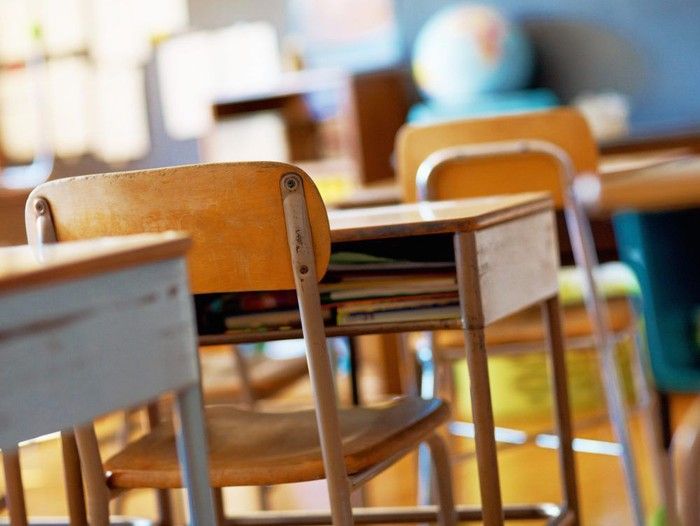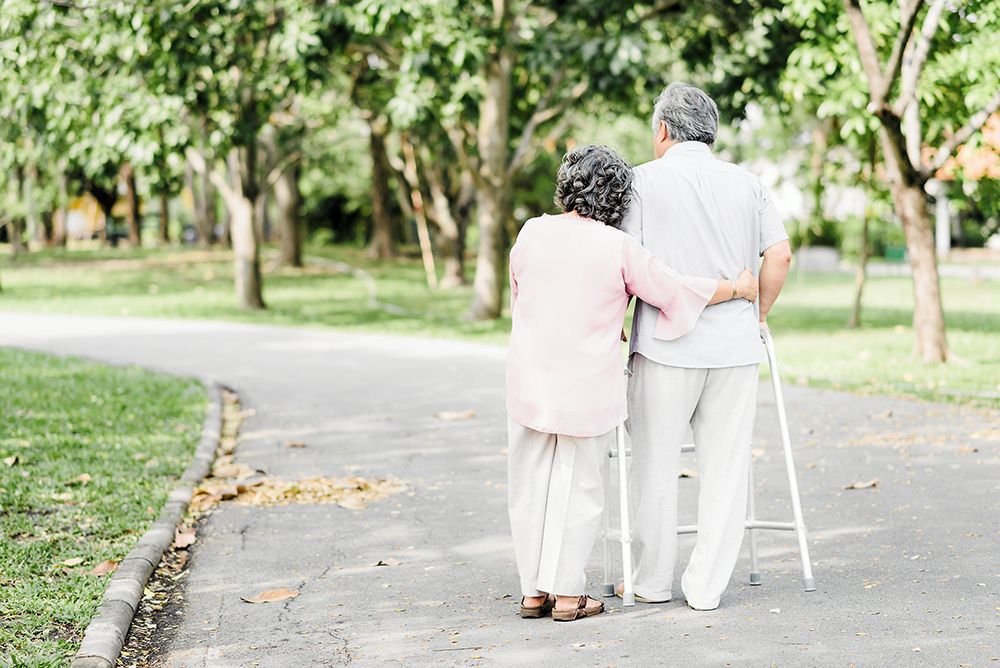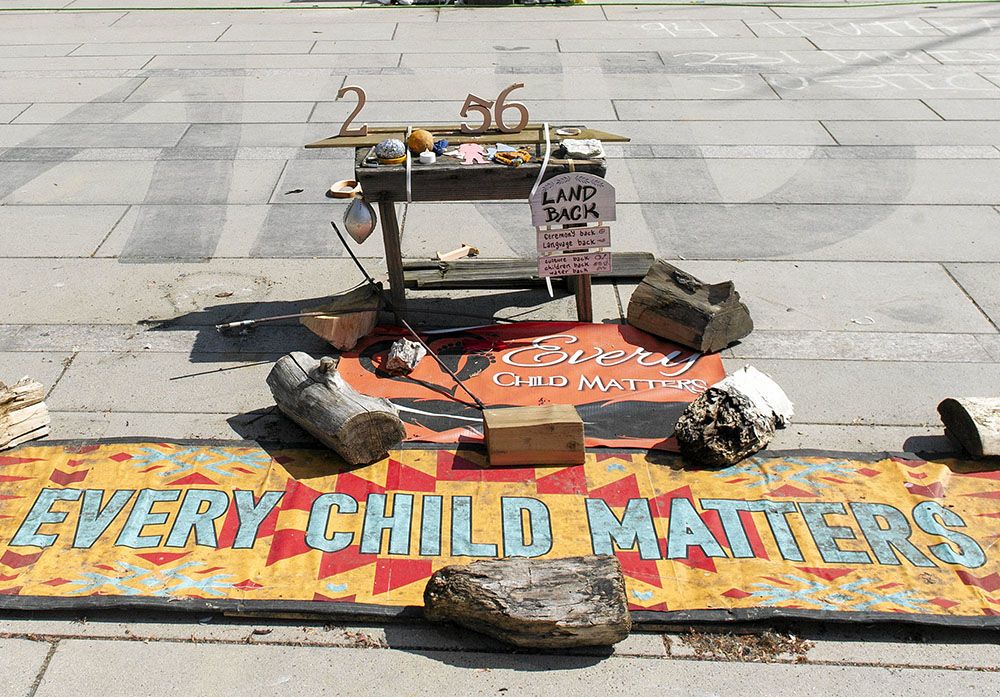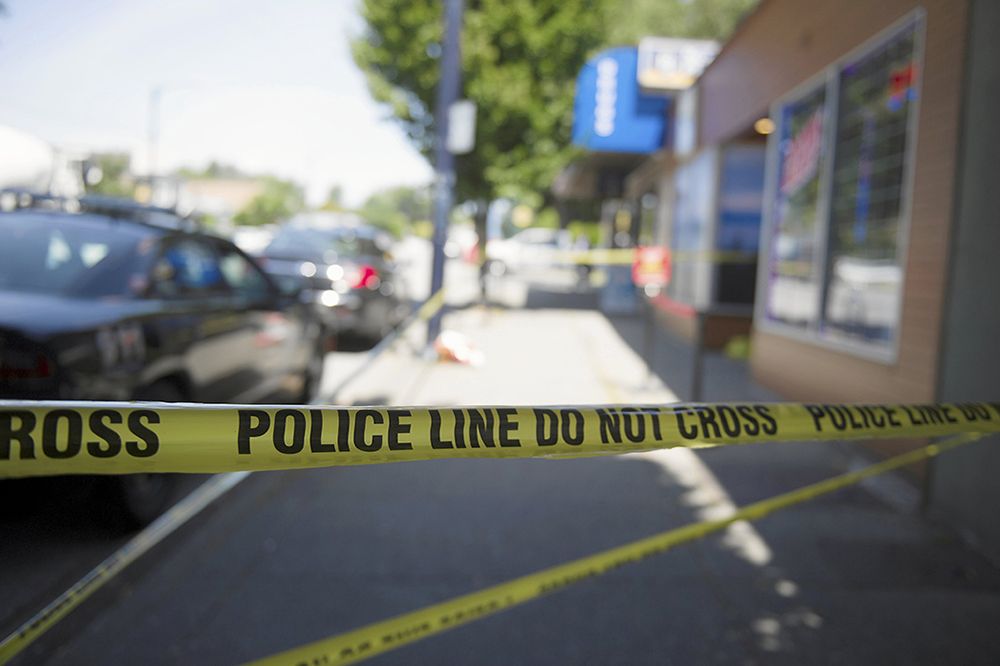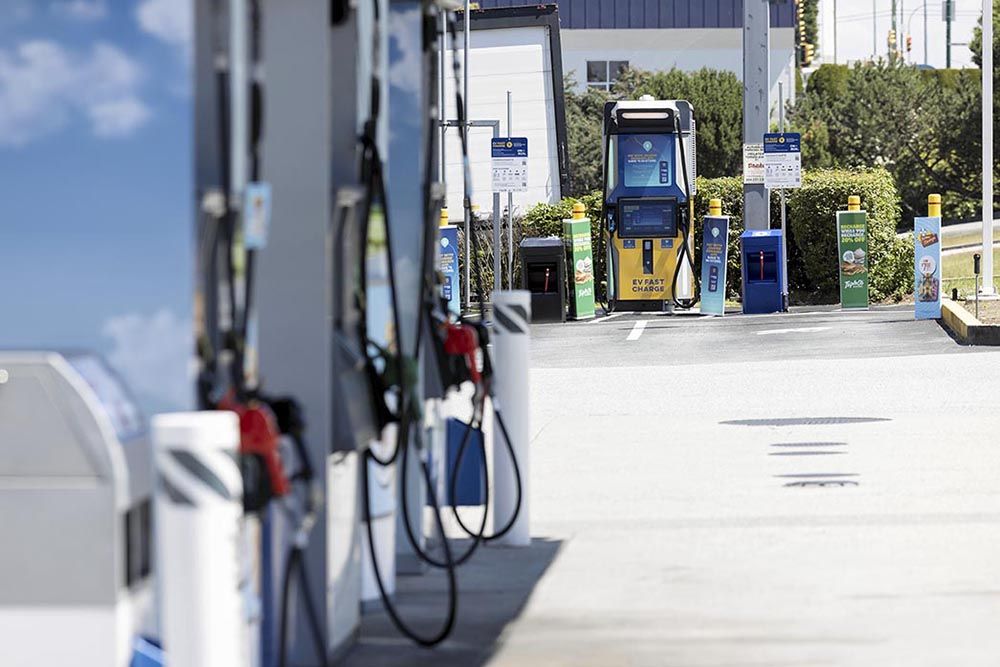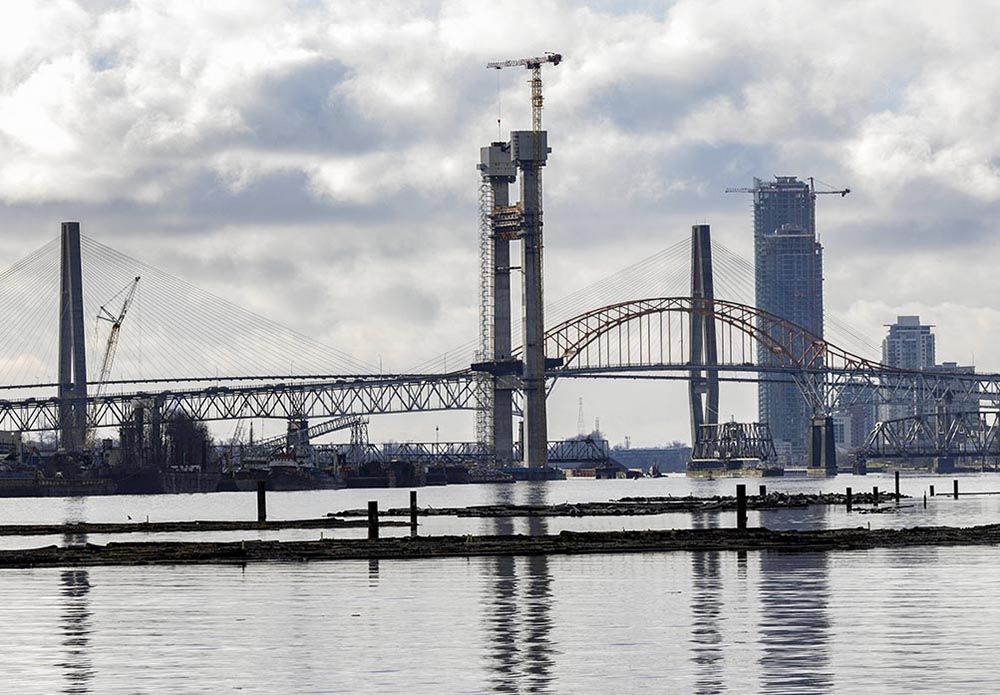Wondering who to vote for in the 2024 B.C. election? Here are brief summaries of where the B.C. NDP, Conservative Party of B.C. and Green Party of B.C. stand on 12 major issues, and highlights of what they are promising British Columbians:
B.C. ELECTION 2024: 12 HOT TOPICS AND WHERE EACH PARTY STANDS

Affordable housing and rental housing
B.C. NDP: The NDP are promising to expand on many policies they have put in place since David Eby became premier, including additional density near transit stations, upzoning single-family lots to allow four to six units, and developing affordable housing on public land through B.C. Builds. New promises include a program to support first-time homebuyers by financing up to 40 per cent of the sale price on select developments, providing subsidized insurance for landlords, doubling the speculation and vacancy tax for foreign homeowners to three per cent, and eliminating no-pet clauses in purpose-built rentals.
Conservative Party of B.C.: The Conservatives promise a tax rebate for renters and homeowners that would start in 2026 and initially exempt $1,500 a month of rent or mortgage interest costs from provincial income taxes. By 2029, the exemption would increase to $3,000 a month, which Leader John Rustad said could save renters and homeowners $1,600 to $1,700 annually. The party promises rezoning and development permit approvals within six months and building permits within three months, and a civic infrastructure renewal fund to provide $1 billion a year to municipalities that allow small-scale multi-unit housing on at least two-thirds of their residential land.
Overdose crisis and mental health
B.C. NDP: The NDP promises a mental health counsellor in every school and $50 million to expand community mental health organizations and to open Foundry centres for youth in 10 towns. It promises on-demand addictions treatment, Indigenous treatment centres, new residential treatment for parents with children, a second Red Fish hospital for mental health and addictions, and new involuntary care facilities for people at risk to themselves or others. The party promises B.C.’s first treatment centre for construction workers and to provide easy-to-use nasal naloxone at all pharmacies. It also promises mental health units in jails.
B.C. Greens: The Greens promise $900 million over three years for drug policies, including: supervised consumption sites in hospitals, supervised consumption sites being open 24/7, and expanded drug testing. The party promises to expand safer supply drugs and local production of nasal naloxone. It would expand bed-based and community-based care, and decriminalize substance use. The Greens pledge $446 million to increase mental health services and resources, including more mental health support for first responders, increased recruitment and retention of front-line mental health workers, a provincial mental health advocate, and MSP coverage of six mental health appointments.

Child care
B.C. NDP: The NDP’s platform makes few new campaign promises on child care, promising instead to fulfil the commitments it has made while in power. That includes $500 million over several years to add “affordable” child care spaces, including a long-term plan to build more child care centres, some of them on school grounds. It also vows to continue expanding the $10-a-day model, a marquee program that so far has had limited reach. Since forming government in 2017, the NDP says it reduced daycare fees for 150,000 children, created 37,000 new licensed spaces and boosted wages for child care workers.
Conservative Party of B.C.: The Conservatives promise to expand the $10-a-day model to unlicensed daycares, which the NDP excluded. They pledge to prioritize children on the $10-a-day waiting list “who need it most” and to create 24-hour child care to support shift workers. The party promises to reduce “unreasonable regulations” in order to allow more child care spaces in homes, offices and public buildings. It vows to increase child care and family benefit programs which would allow parents to “choose the child care that works best for them, whether outside the home, at home with parents, or with family members.”
Health care
B.C. NDP: The NDP pledges $811 million over two years in new spending in health care and mental health. It will continue with or expand programs to train more doctors and nurses, enable pharmacists to prescribe medication, build urgent and primary care centres, provide financial aid for patients who travel for care, build more hospitals, and continue its 10-year plan to improve cancer care. The party says it will improve health care for women by providing free hormone replacement therapy for menopause. It would ban employers from requiring employees to provide a doctor’s note for short-term illnesses.
B.C. Greens: The Greens budget $571 million over three years in new health spending. They vow to create community health centres in all 93 ridings, staffed by doctors or nurse practitioners, physiotherapists, dietitians and other health workers. They also promise to eliminate cigarette sales in pharmacies, ban vaping ads, replace the six health authorities with a single agency, create a centralized referral system for surgeries to reduce waiting times, boost funding for nurses to stop reliance on private agencies, review loan forgiveness and paid practicums to encourage more students to study health care, make all vaccines free, and reduce paperwork for family doctors.
Education
B.C. NDP: The NDP promises to staff each kindergarten to Grade 3 classroom with an education assistant to support kids with complex needs and to make sure every school has a mental health counsellor. The party also promises programs to attract teachers to work in high-need districts facing staffing shortages and to build 20,000 more student spaces in the fastest-growing communities. The party would carry out its commitment to ban cellphones in schools and to work with teachers on expanding drug prevention education.
Conservative Party of B.C.: The B.C. Conservatives have yet to release their education plan despite repeated requests from Postmedia for information. Party leader John Rustad has said he will scrap SOGI 123, a set of books and resources designed to help teachers talk to students about bullying and create a safe space for LGBTQ+ students in the classroom. Rustad says this program promotes the “sexualization of children” and is contrary parental rights. He believes schools should focus on teaching children how to think — not what to think.
Cost of living
B.C. NDP: The NDP promises to cut taxes by about $1,000 for households and more than $500 for individuals by exempting an additional $10,000 of individual income from provincial income tax each year. The party has emphasized its track record for reducing costs through scrapping MSP premiums and bridge tolls and making prescription birth control free. The party promises to freeze ICBC premiums, add more affordable child-care spaces and expand the school meals program. It promises to eliminate B.C.’s carbon tax on consumers if the federal mandate requiring the tax is removed by the party that wins the next federal election.
B.C. Greens: The Greens promise to raise social assistance and disability assistance rates to help everyone meet basic living expenses. People earning more than $350,000 would be hit with a tax increase of about 22.5 per cent. The party would raise the food crisis grant from $40 a month to $200 a month to better support people facing food insecurity. The party also wants to expand the availability of “deeply affordable housing” to prevent people from becoming homeless. The Greens say people leaving hospitals, medical care and prisons will be offered support for at least six months to facilitate a successful transition.
Seniors care and seniors issues
B.C. NDP: The NDP says it will help seniors get around with free off-peak transit. The party promises to provide more assistance to seniors who rent and to increase the supplement for low-income seniors. The party pledges to help seniors live independently and will expand programs that provide non-medical support services for those who live at home. The party promises more affordable housing and will build 5,400 more long-term care beds.
Conservative Party of B.C.: The Conservatives promise to expand access to home care as an alternative to long-term care, which they say would save $45,000 a senior each year in care costs while “improving seniors’ quality of life.” The party plans to boost tax credits for family caregivers and increase funding for home support. It would deliver 5,000 long-term care beds by 2030, provide financial assistance for mobility aids, glasses and hearing aids, and cover the cost of shingles and high-dose flu shots. The party would eliminate hospice care charges, improve assistance for seniors who rent and expand transportation options like HandyDART.
Indigenous relations
B.C. NDP: The NDP says it is committed to continuing work on completing all actions under the 2019 Declaration on the Rights of Indigenous Peoples Act plan. So far, the government has made progress on 60 of the 89 actions and completed six, including the establishment of a declaration act secretariat and implementation of a mandatory course on First Peoples as part of the K-12 curriculum. The party’s other promises in 2024 include building housing for First Nations on and off reserve and partnering with First Nations on the protection of 30 per cent of the land base by 2030.
B.C. Greens: The Greens are promising to recognize all Indigenous governments and to seek to remove limitations on band councils formed under the Indian Act, to give all Indigenous governments stable funding and to enact an Indigenous Languages Act guaranteeing language rights, including for government-issued identification. They promise to review the Land Act to align it with the Declaration on the Rights of Indigenous Peoples Act (similar to what the NDP was planning before facing backlash), to create an expert advisory committee on legislation related to Indigenous rights and to provide education to civil servants on Indigenous history.
Street disorder and public safety
B.C. NDP: The NDP says it will crack down on repeat offenders by strengthening targeted policing, while pushing the federal government for stronger bail and sentencing conditions for repeat violent offenders. To make streets safer, the party pledges to support police to keep guns off the streets and to continue anti-gang programs, like the new gang homicide team. The party promises tougher hate crime legislation, expanded availability of transition houses for women escaping domestic abuse, higher fines for “reckless supercar drivers” tied to the value of their cars, and red light cameras at busy intersections. The party will also ramp up seizures of the proceeds of organized crime.
Conservative Party of B.C.: The Conservatives want to “clean up” communities by shutting down drug consumption sites that are not “meaningful gateways to treatment.” It would end B.C.’s drug decriminalization pilot. It promises to crack down on crime and open drug use, and increase policing in communities that have an increase in both. It would increase funding for police and hire more sheriffs and judges. It will fight for minimum sentences and create a court to hold trials for minor criminal offences within one week of arrest. It will have “zero tolerance” for tent cities on provincial property.
Energy
B.C. NDP: The NDP’s plan is underpinned by their CleanBC strategy. Released in 2018, it’s meant to significantly reduce carbon emissions and transition the province to a less carbon-intensive economy. The NDP says it would double electricity generation by 2050 by increasing renewable sources like wind and solar. It would use revenues raised from oil and gas development, including liquefied natural gas, to build a “clean” economy, which it says will attract more investment. The party promises to expand the electricity grid, double electric vehicle chargers and provide rebates and incentives to increase efficiency and switch to electricity.
B.C. Greens: The Greens say B.C. needs to transition away from fossil fuels and that doing so will protect the environment and strengthen the economy. They would spend on renewable energy like wind, solar and geothermal and create a timetable with annual targets to do so. They would fund research of geothermal energy production and work to transfer technological know-how from oil and gas drilling to the geothermal sector. The Greens would invest $20 million annually in small-scale solar projects, aiming to have solar account for 15 per cent of electricity generation by 2035.
Climate change
B.C. NDP: NDP leader David Eby would end the provincial carbon tax on consumers, if Ottawa removes the legal requirement to have one. The NDP says it will work with partners to preserve critical, at-risk areas of biodiversity, and will commit to protecting 30 per cent of land and water by 2030. The party would expand salmon restoration, fund the Youth Climate Corps, which provides environmental jobs to young people, and double public chargers for electric vehicles. The NDP would continue with solar panel and home battery rebates to create and store energy and lower hydro bills by putting electricity onto the grid.
Conservative Party of B.C.: So far, the Conservatives have not released a climate plan despite repeated requests from Postmedia. Party leader John Rustad has said he believes humans have played a role in causing warming, but it is not a crisis and that “taxing people into poverty” through the carbon tax “won’t change the weather.” He would axe the provincial carbon tax, increase disaster recovery funds and improve flood mitigation infrastructure to help farmers recover from extreme weather events.
Infrastructure
B.C. NDP: The NDP promises to continue doing what it has started, such as complete the Pattullo Bridge replacement, build a Massey Tunnel replacement, and the Surrey to Langley extension of SkyTrain. New promises include extending the Broadway subway extension of SkyTrain to UBC and continue the next leg of Highway 1 widening from Abbotsford to Chilliwack. It would also extend intercity bus service between transportation hubs and support TransLink priorities, including bus rapid transit to the North Shore, extending the West Coast Express to Chilliwack and new commuter rail in the Fraser Valley. No costs were attached to the plans.
B.C. Greens: The party has made public transportation a key plank in its platform by promising to make transit free, both through TransLink in Metro Vancouver and around the province through B.C. Transit. The party would double the number of buses travelling in and between cities within four years. Furstenau called it a “win-win” to reduce transportation costs for families and ease congestion on roads. The Greens also promise to give $650 million per year to municipalities to build infrastructure and to share a part of property transfer taxes with communities that meet housing development targets.
Story by: Vancouver Sun



